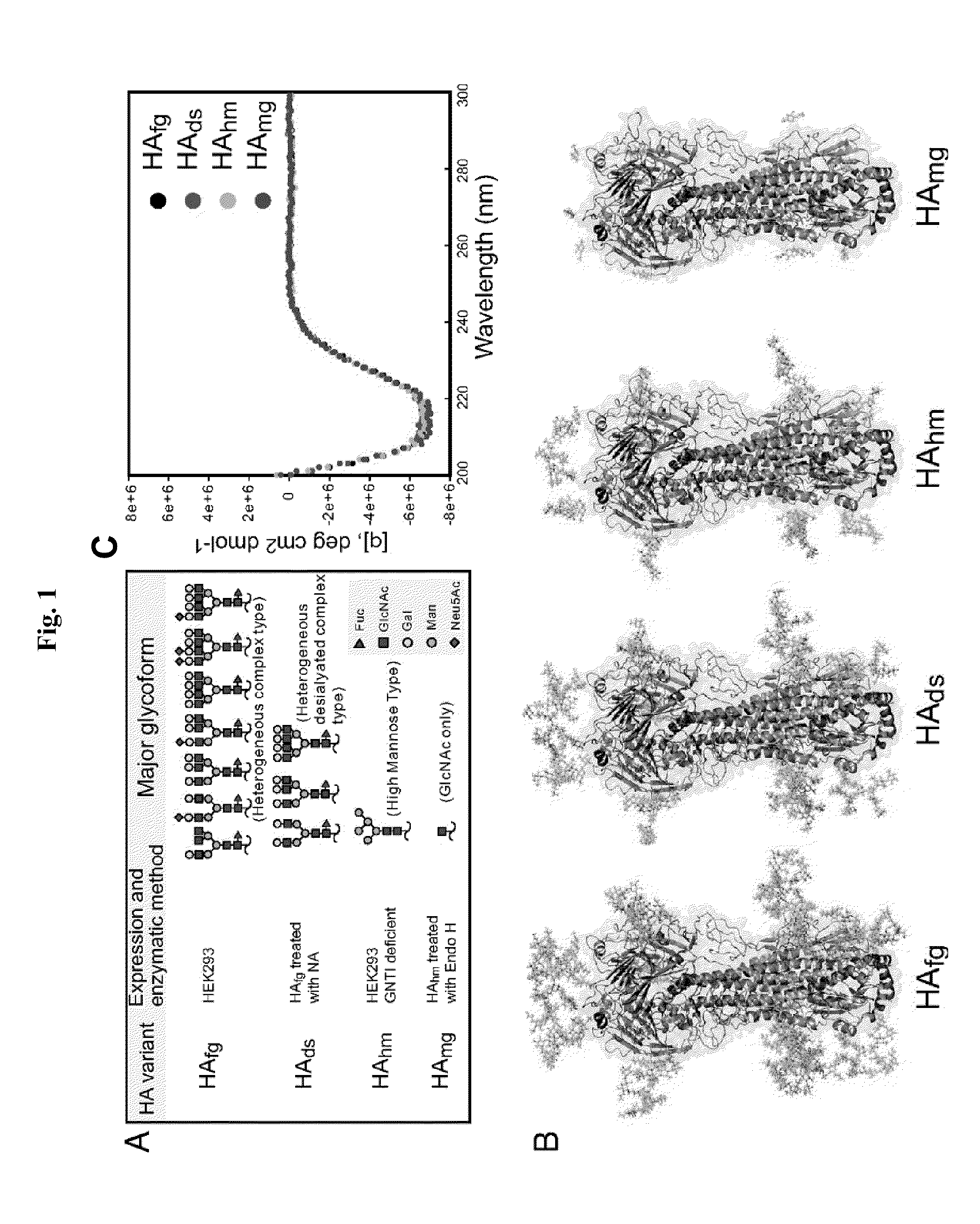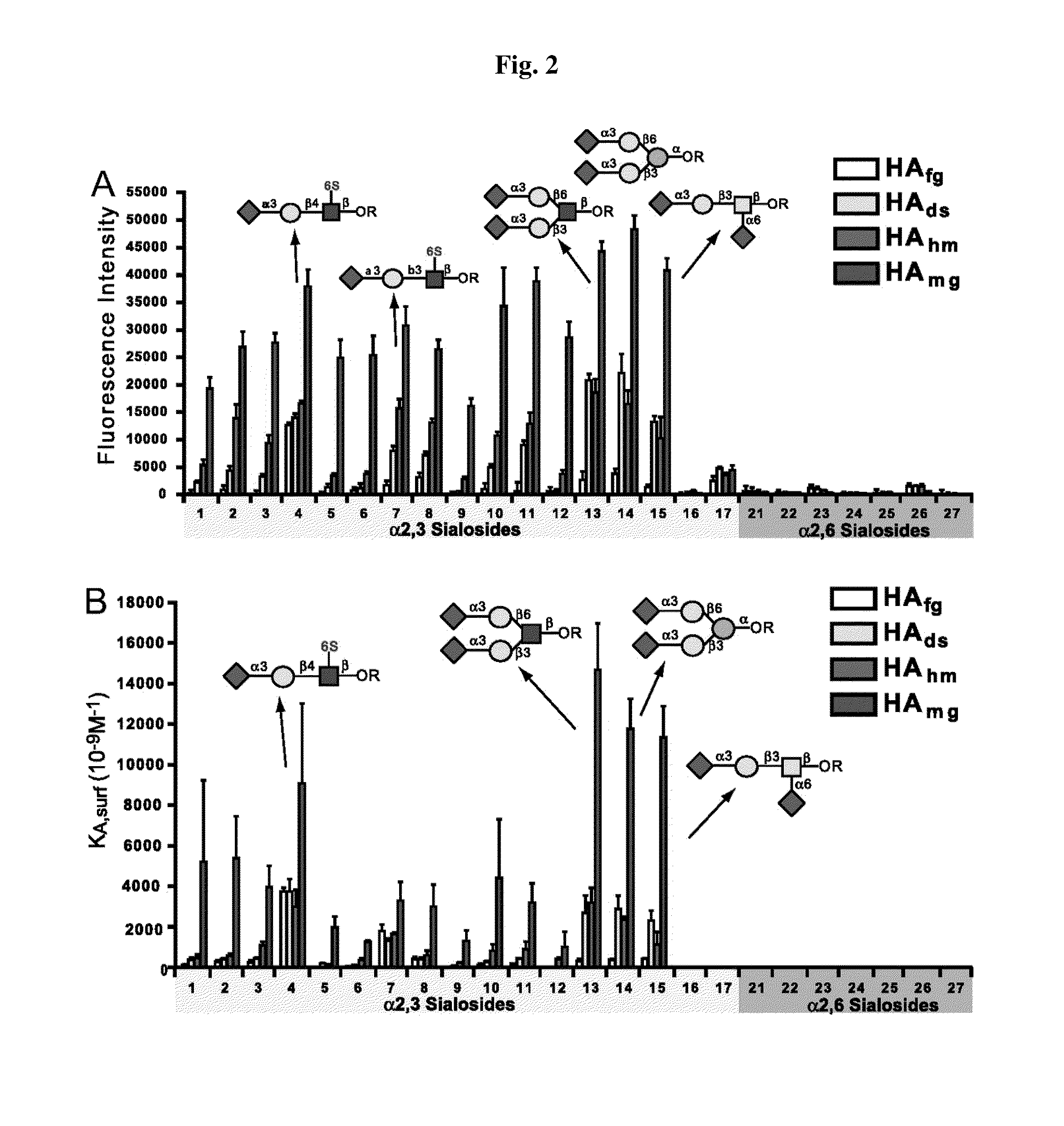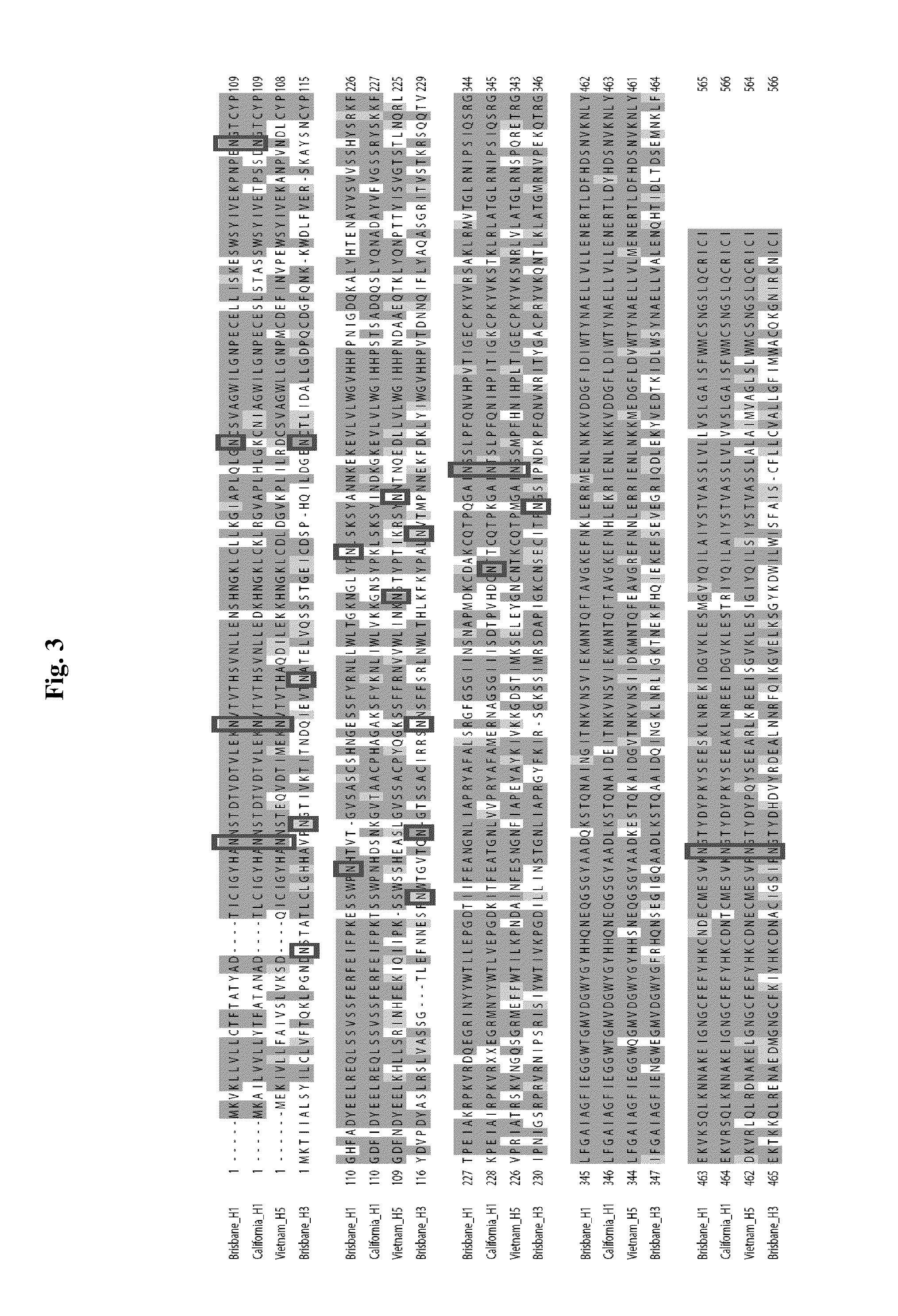Methods and compositions for immunization against virus
a technology of immunization and composition, applied in the field of glycosylated viral polypeptides, can solve the problems of pandemic threat, mismatch between the viral strain present in the vaccine and the circulating strain, and widespread morbidity and mortality worldwide, so as to increase immunogenicity, maintain or enhance quality and antigenicity, the effect of maximizing the respons
- Summary
- Abstract
- Description
- Claims
- Application Information
AI Technical Summary
Benefits of technology
Problems solved by technology
Method used
Image
Examples
example 1
Gene Construct for HA Expression
[0232]The Influenza H5N1 HA sequence was from the consensus H5, CHA5 (Chen M W, et al. (2008) Proc Natl Acad Sci USA 105:13538-13543). The codons of CHA5 were optimized for expression by using human codons. The original viral protease cleavage site PQRERRRKKRG was mutated to PQRERG in order to prevent proteins from the enzymatic cleavage to form HA I and HA2. The transmembrane region (residues: 533-555) was replaced with the additional residues(LVPRGSPGSGYIPEAPRDGOAYVRKDGEWVLLSTFLGHHHHHH) at the C terminus of the HA construct, where the thrombin cleavage site is in italics, the bacteriophage T4 fibritin foldon trimerization sequence is underlined, and the His-tag is in bold (Stevens J. et al. (2006) Science 312:404-410). The modified HA sequence was cloned into pTT vector for protein expression (Durocher Y, et al. (2002) Nucleic Acids Res 30:E9).
example 2
Protein Expression and Purification
[0233]The plasmid that encodes the secreted HA was transfected into the human embryonic kidney cell lines of either HEK293EBNA (ATCC number CRL-10852) or the GnTI-HEK293S cells (Reeves P J, et al. (2002) Proc Natl Acad Sci USA 99:13419-13424) by using polyethyleneimine and was cultured in Freestyle 293 expression medium (Invitrogen, Carlsbad, Calif.) supplemented with 0.5% bovine calf serum. The supernatant was collected 72 h after transfection and cleared by centrifugation. HA proteins were purified with Nickel-chelation chromatography as previously described (Wei C J, et al. (2008) J Virol 82:6200-6208) to obtain fully glycosylated HAfg and high-mannose-type HAhm. To obtain the HA protein without sialylation—the desialylated HAds—the purified protein was treated with 20 mM Clostridium neuraminidase (NA; Sigma) for 2 h at 37° C. After the NA treatment, the protein was purified again to be separated from the NA. The purified HAhm was treated with E...
example 3
Release of N-Glycans from Glycoproteins for MS Analysis
[0234]The purified HA glycoproteins were reduced with 10 mM dithiothreitol (DTT, Sigma) at 37° C. for 1 hour. Reduced sample was then alkylated by 50 mM Iodoacetamide (IAA, Merck) in the dark for 1 hr and then was desalted by double distilled (ddH20) and dried in a speed vacuum. The reduced and alkylated HA protein extracts were first digested with trypsin (Roche) in an approximate ratio of enzyme to protein at 1:20 (w / w) in 50 mM ammonium bicarbonate buffer pH 8.3 at 37° C. for 4 hrs, followed by secondary typsin (Roche) digestion, and then loaded on to reverse phase C18 Sep-Pak cartridge (Waters Corp). The Sample were furthermore incubated with N-glycosidase F (Roche) in 50 mM ammonium bicarbonate pH 8.3 at 37° C. for 16 hrs, and with two more N-glycosidase F incubations. Released N-glycans were separated from peptides / glycopeptides by C18 Sep-Pak cartridge procedure with N-glycans collected in 5% acetic acid (AcOH), the flow-...
PUM
| Property | Measurement | Unit |
|---|---|---|
| particle size | aaaaa | aaaaa |
| particle size | aaaaa | aaaaa |
| particle size | aaaaa | aaaaa |
Abstract
Description
Claims
Application Information
 Login to View More
Login to View More - R&D
- Intellectual Property
- Life Sciences
- Materials
- Tech Scout
- Unparalleled Data Quality
- Higher Quality Content
- 60% Fewer Hallucinations
Browse by: Latest US Patents, China's latest patents, Technical Efficacy Thesaurus, Application Domain, Technology Topic, Popular Technical Reports.
© 2025 PatSnap. All rights reserved.Legal|Privacy policy|Modern Slavery Act Transparency Statement|Sitemap|About US| Contact US: help@patsnap.com



